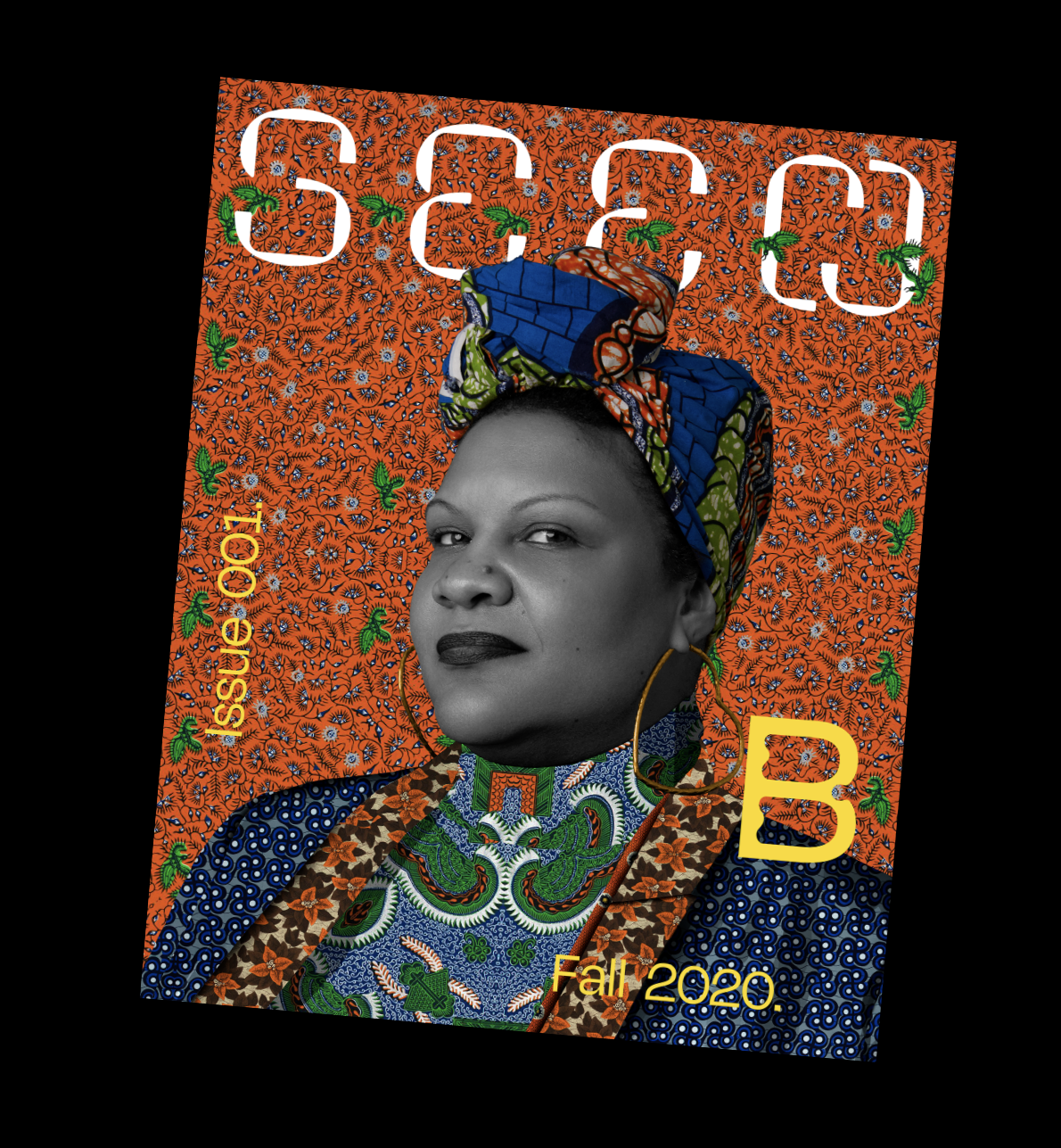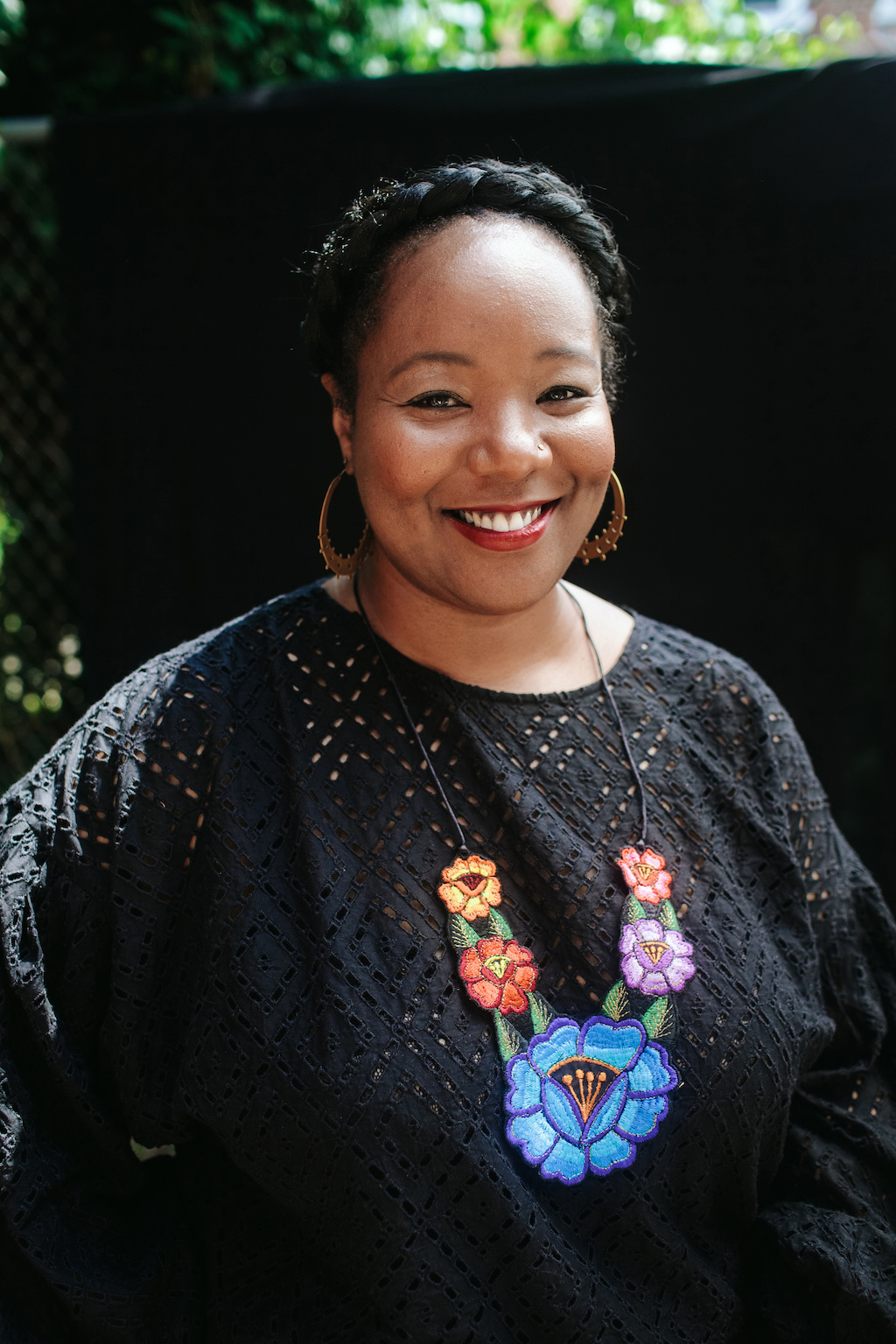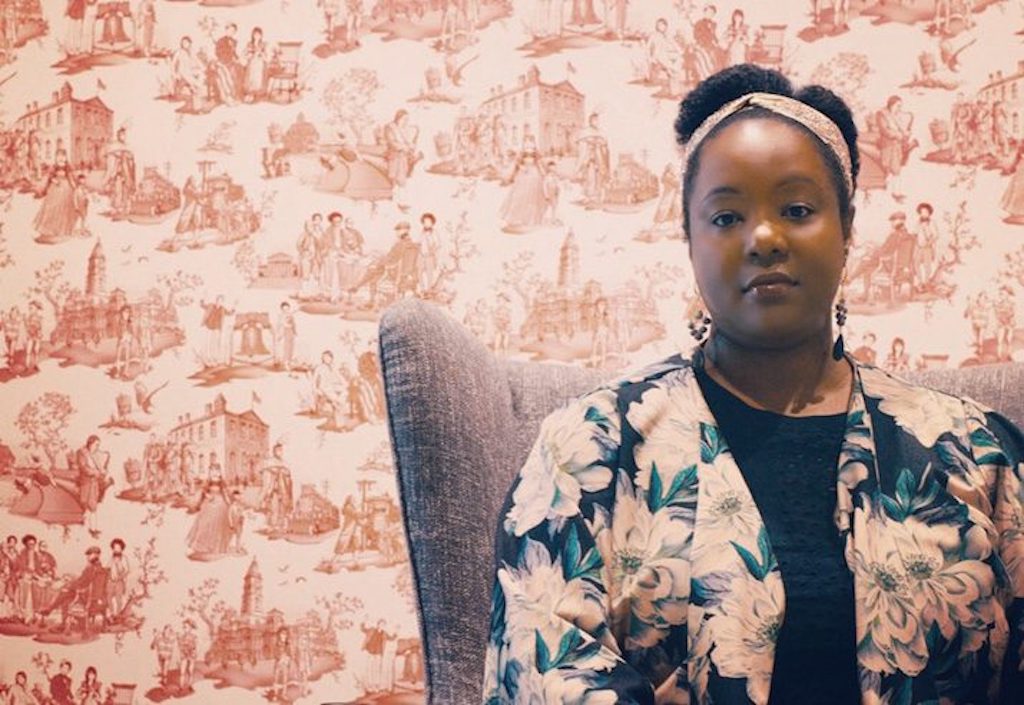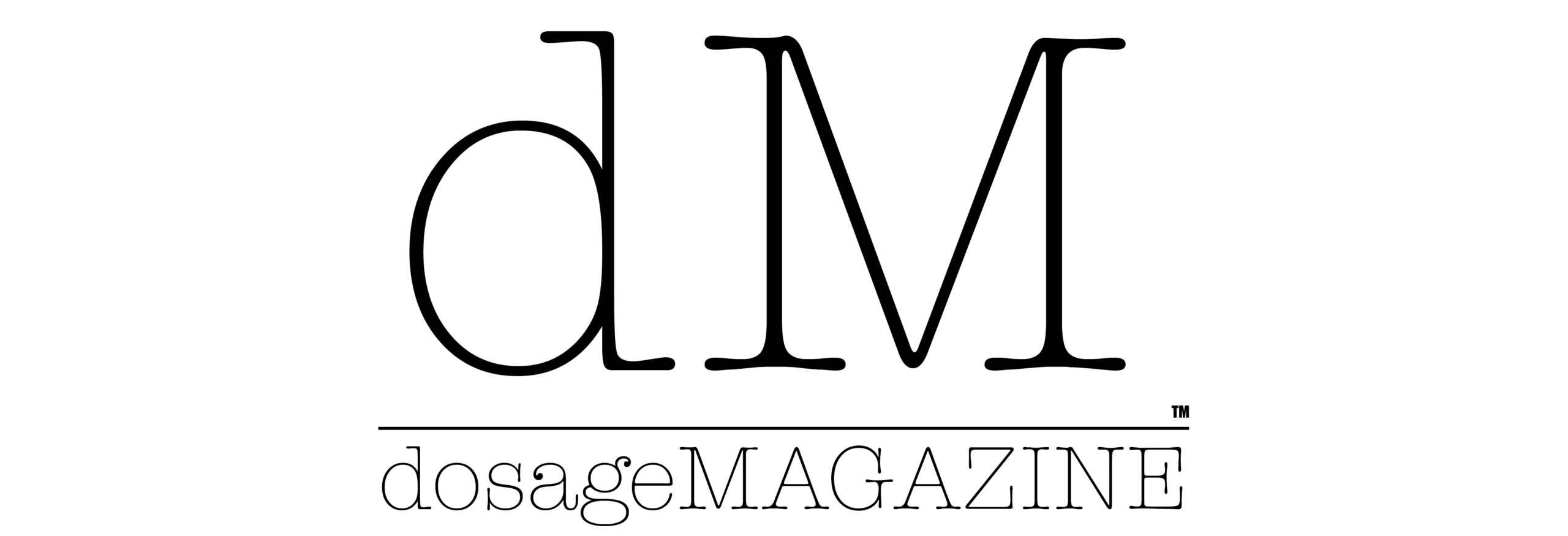As the Artistic Director, co-creator and CEO of the long-running Philly-based Blackstar Film Festival, Maori Karmael Holmes has moved mountains for local, national and international filmmakers, takers, thinkers and innovators of color. She hasn’t had much time, what with a pandemic, to take advantage of her still-fresh role as curator-at-large for film at the University of Pennsylvania’s Annenberg Center for the Performing Arts. Something, Holmes has been able to do during C-19’s lockdown, is start SEEN, her biannual journal of film and visual culture focused on Black, Brown, and Indigenous communities. Out as of last week, and with an assist from new managing editor Nehad Khader (BlackStar’s program director), SEEN takes in cinema from Black, South Korean, African and Brazilian films and moviemakers, past, present and future. And, the journal can be read online as well as in print – a plus for those, like myself, who still revel in the pleasure of the hard press.

dosage MAGAZINE and I caught up with Maori Karmael Holmes fresh from SEEN’s publication.
A.D. Amorosi: How has the Annenberg cinema curation gig been since the pandemic started?
Maori Karmael Holmes: Well, we have been on a pause somewhat since I started at Annenberg, which was March 1, and the center has been pivoting their entire program overall. And mine being new is definitely taking a new direction than what I expected (an in person repertory program). I am hoping that this spring will be more robust and next year even more so.
A.D. Amorosi: How was the BlackStar fest run, administered, amended and attended, virtually amidst C-19?
Maori Karmael Holmes: The 2020 BlackStar Festival was run 95% virtually with a handful of drive-in and one rooftop screening. We showed about the same number of films and held the same amount of panels and still had a few parties. But of course the vibe was different. Especially for staff. Our attendance was also wildly different. For screenings, we had about 30,000 viewers. For the free content, panels and our morning show, “BlackStar Live”, we had 3.5million viewers the week of the festival.

A.D. Amorosi: How long has it been that you were attempting to create and curate a Black/Brown/Indigenous film publication and what were the earliest steps like toward that goal?
Maori Karmael Holmes: It’s been a long-time dream to have a magazine, focused on culture broadly. I started thinking about film specifically about three years ago. We started doing extensive program guides in 2015 with interviews and essays which led to museum-style catalogs in 2017. In many ways, Seen is an extension of that.
A.D. Amorosi: Why you were attempting to create and curate a publication around Black/Brown/Indigenous film and culture?
Maori Karmael Holmes: I have had the experience as a filmmaker and as a programmer of having and/or witnessing work be incorrectly analyzed by folks who lack the cultural competence to understand either what a film is trying to do, its references. Or in some cases, its relevance. In order for artists to grow they require appropriate critique and for so long this has been lacking for Black, Brown and Indigenous artists. It’s not that mainstream critique isn’t valid, but there needs to be varying types of critique and access into a work. I also don’t want to pretend that I’m creating the first publication of this kind but I thought that we (as BlackStar) could offer something unique to the landscape, building upon the relationships and perspective we’ve developed over the years.
BlackStar Film Festival – The 2020 Philly Film Fest for global communities of color goes virtual
A.D. Amorosi: Why was or how was now the right time to finally drop SEEN?
Maori Karmael Holmes: In January, BlackStar hired its first almost full-time staff at 80%, including myself. And it gave me some space, in some regard, to think about other programs we’ve been dreaming about. I think now is the right time with the focus over the last decade on work by BIPOC creators and thus a space to critique that works is especially important. We received a planning grant from Critical Minded which enabled us to pull together a group of critics and filmmakers, many of whom are collaborators on this issue, and we were lucky enough to receive some general operating funds which we could put toward producing the publication. I also received a fellowship from Open Society Foundation in 2019, specifically to focus on developing this platform, and additionally, I was appointed as a visiting scholar at Annenberg School for Communication, along with the Curator position at Annenberg Center. It’s a joint appointment which gave us some institutional support for the journal as well.
A.D. Amorosi: What were the landmines, sidesteps and obstacles to doing so like? External and internal?
Maori Karmael Holmes: We’ve been doing BlackStar as a very part-time or side project for 8 years and that itself was an obstacle. Internally, it has just been a capacity issue. We received a planning grant from Critical Minded which enabled us to pull together a group of critics and filmmakers, many of whom are collaborators on this issue, and we were lucky enough to receive some general operating funds which we could put toward producing the publication.

A.D. Amorosi: From what I have seen and read of the first issue, it is worthily focused on 21st Century films and filmmakers. Is that where you’ll nestle? A great place, no doubt as there are so many new POC cinema creators. Will the historical Black/Brown/Indigenous filmmakers have a place at the table at SEEN?
Maori Karmael Holmes: We have an essay focused on women of the LA Rebellion, which took place in the 20th Century (1970s-1990s), and I imagine that we will continue to examine historical and contemporary topics.
A.D. Amorosi: As a native Los Angeles-ian, what has been, is your take on what Philly film and its film scene have to offer by way of its existing POC artists, and up-and-coming POC film people?
Maori Karmael Holmes: I came to Philly to attend grad school at Temple and my life here has been surrounded by independent filmmakers. Especially documentary makers. I think that Philly’s film scene is nurturing to existing and emergent filmmakers in that there are support and encouragement among folks. I do wish there was more work, but in exchange, there is lots of space and room for experimentation. But there is incredible work happening.
A.D. Amorosi: Do you see SEEN as a Black aesthetic film literature reference publication? Do you hope POC filmmakers, all filmmakers, will use this as a go-to guide as you build a catalog of issues?
Maori Karmael Holmes: I hope that SEEN will become a point of reference with regard to cultural production by BIPOC artists in the 21st century. I don’t think I can puff myself up enough to say that we’d be the ‘go-to guide’ but I definitely imagine that folks will have these in their personal libraries and return to the pages often.
A.D. Amorosi: I love that there is a print version of SEEN at a time when print is going down. Why?
Maori Karmael Holmes: I love print. My collaborators all love print. I think it is important to create items for the archive. But we’ve also made it available digitally.
A.D. Amorosi: How and why and when did you first fall in love with film, Black, Brown, White, whatever, in the first place?
Maori Karmael Holmes: I fell in love with film in high school. Watching magical realist adaptations, Merchant Ivory and Miramax films with my mom.

A.D. Amorosi: What’s next?
Maori Karmael Holmes: We are launching a podcast called “Many Lumens,” in a few weeks. And then will be hosting a Filmmaker Seminar in March. And of course, gearing up for the second issue of SEEN and another festival.
About Post Author
Discover more from dosage MAGAZINE
Subscribe to get the latest posts sent to your email.


